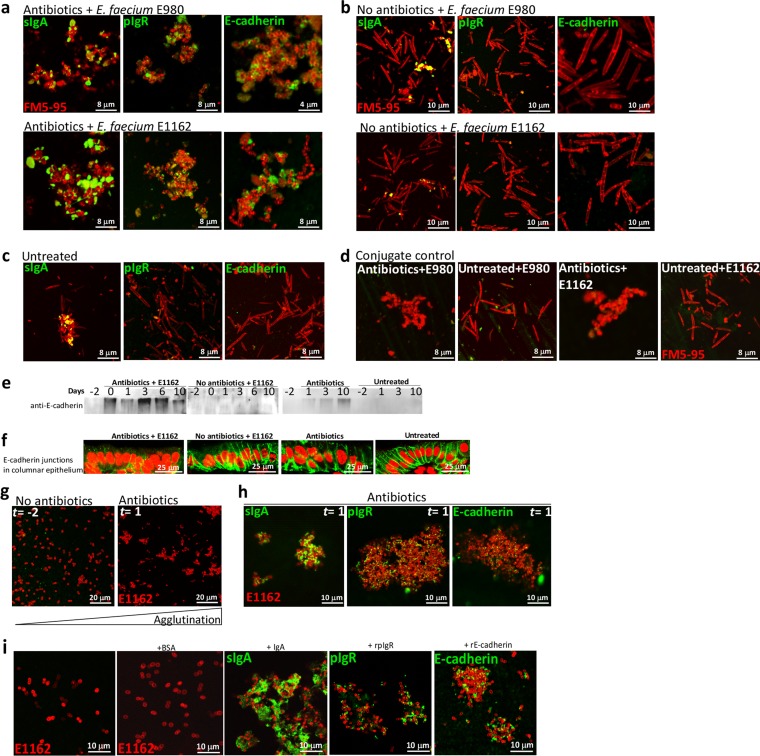FIG 4 .
Agglutination of E. faecium by host molecules. (a) IF assays with anti-IgA, anti-pIgR, and anti-E-cadherin antibodies of the cecum contents of animals treated with antibiotics and inoculated with either E980 or E1162. (b) IF assays of the cecum contents of animals not treated with antibiotics but inoculated with either E980 or E1162 (both panels a and b are representative of two animals per group). (c) IF assays of the cecum contents of untreated animals (two animals per group). (d) Incubation of the cecum contents of antibiotic-treated and untreated mice with Alexa Fluor 488-conjugated donkey anti-goat IgG (n = 4). (e) Western blotting of fecal extracts with anti-E-cadherin antibodies indicating anti-E-cadherin immunoreactive species in antibiotic-treated animals only and not in untreated animals. (f) E-cadherin labeling of adherens junctions in colon thin sections demonstrating aberrant and deformed junctions in antibiotic-treated animals and normal junctions in untreated animals. (g) Agglutination of E. faecium E1162 in fecal extracts from day −2 (no antibiotics) and day 1 (2 days of antibiotics). (h) IF assay of these agglutinated E1162 bacteria with specific anti-IgA, anti-pIgR, and anti-E-cadherin antibodies. (i) Agglutination of E. faecium E1162 by recombinant IgA, pIgR, and E-cadherin proteins and not by bovine serum albumin.

